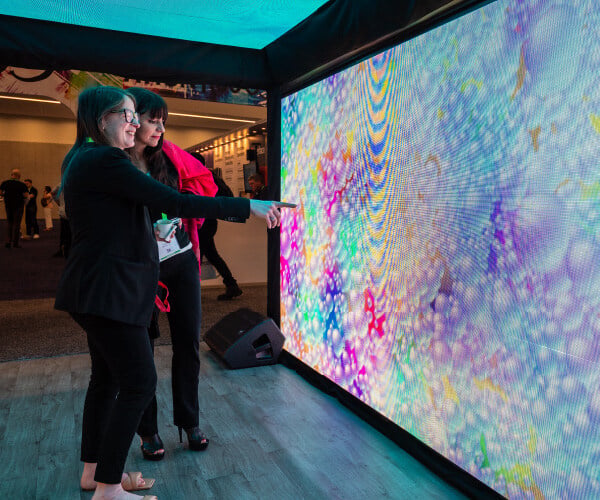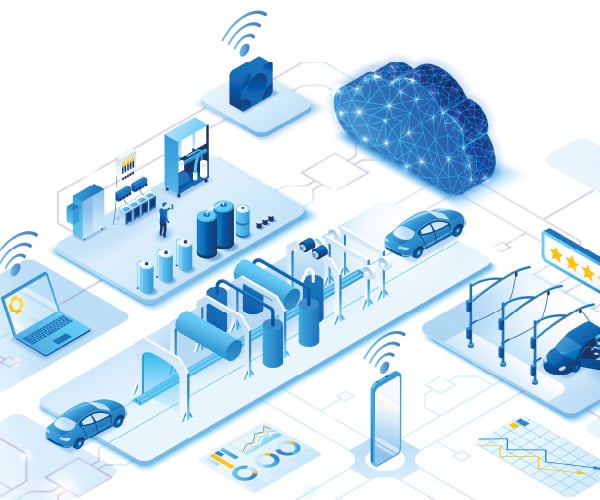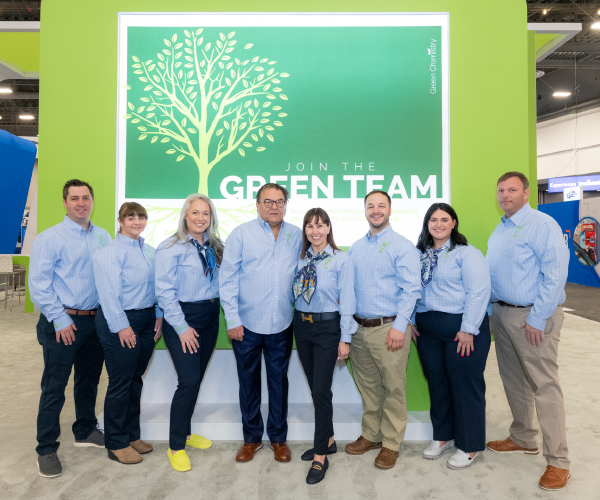
New Auto Technologies: Hot or Not?
February 22, 2022
6 minute ReadBy Nicole Nelson
When Mark Chisholm first got behind the wheel, key vehicular features included the AM/FM radio with a lucky bonus of an 8-track player. At that point in time, the Jetsonian notion of smartphones and connected cars was seemingly light-years away.
Fast-forward to 2020 and you will find the 55-year-old chemical and customer service manager of Canada-based WashPros utilizing a full array of connected vehicle features available on the market today.
“I firmly believe we need to embrace the new, up-and-coming technology in vehicles,” the unabashedly pro-tech Chisholm said, noting features including Bluetooth, Android Auto and Apple CarPlay have made his job both easier and safer while driving.
TURN UP THE HEAT
Metova, a provider of mobile, connected car, connected home and internet of things (IoT) solutions, recently surveyed more than 1,000 consumers to find that Chisholm’s opinion is shared by many. In fact, the survey revealed that only gas mileage, reliability and price are more important than technology and “infotainment” when considering the purchase of a new vehicle.
“Technology in vehicles is shifting from a luxury item to being something that is expected in any new vehicle purchase,” Metova President and CMO Jonathan Sasse said in reference to the study examining connected automobile technologies as a deciding factor in purchasing a new automobile.
One of the Metova survey questions asked if a car had the price, brand, color and styling desired, but technology didn’t meet expectations, would the consumer walk away?-2.png)
“We were pretty surprised that technology would be a deal breaker for one in five of them – even if everything else met their needs and it was the car of their choice,” Sasse said. “Only a few years ago, that kind of technology in cars wasn’t even a consideration for buyers. So those are people who would have made those purchases and instead, today, would walk away from that purchase.”
Kristen Kolodge, J.D. Power Executive Director of Driver Interaction and Human Machine Interface, concurs that infotainment and smartphone mirroring technologies are quickly becoming must-haves for the consumer. This was evidenced in the J.D. Power 2019 U.S. Tech Experience Index (TXI) StudySM measuring owners’ experiences, usage and interaction with 38 driver-centric vehicle technologies at 90 days of ownership.
“We are seeing the quantity of vehicles that have this technology incorporated in it being really high, but what’s more, so is the level of satisfaction from consumers who are using smartphone mirroring technologies,” Kolodge said in reference to situations where specific technology is duplicated in the car.
Kolodge continued to say that when given the option of a smartphone mirroring system or factory-installed navigation, J.D. Power is seeing the pendulum swing for consumer preference to the smartphone mirroring navigation system.
“Even if they have both inside the vehicle, they’re preferring their smartphone mirroring navigation,” Kododge said, noting similar trends with voice recognition and music elements available through both Apple CarPlay and Android Auto, dependent upon which smartphone the vehicle operator possesses. “It just keeps coming back to the user experience with smartphone mirroring more satisfying than some of the in-vehicle tech.”
In addition to the strong infotainment game, the TXI Study also identified safety technologies including backup cameras and blind spot warning notification features as positive performers from a consumer point of view.
“Consumers are really over the moon about those two technologies,” Kolodge said, noting the positive feedback has been reported year over year and continues to trend. “Those technologies are acting as a partner in the driving process and it is not nagging or annoying. Drivers trust the information that is there and it is helpful in the driving task.”
These safety-based technologies are also deemed to be effective, with 57% of respondents reporting that features including blind spot warning have helped prevent collisions in a new survey from Consumer Reports.
AN ICY RECEPTION
Not all of the new high-tech options are being embraced across the board, however. While automatic emergency braking and lane keeping assistance received a “helpful” vote according to the consumer advocacy group that publishes Consumer Reports magazine, these same vehicle offerings have received less favorable reviews and, at times, full rejection, in other polls.
“There are some other technologies under this safety assistance technology umbrella that are at the other end of the spectrum,” Kolodge said, noting lane centering assist as the most pointed example in the J.D. Power TXI Study. “The comments coming back from that technology in particular is people feel as if they are essentially fighting the car. So, if it has the steering technology associated with it, in some cases the steering is a bit overly aggressive and startles driver and in some cases acts opposite of what the driver’s wishes are.”
According to a 2017 study by the Insurance Institute for Highway Safety (IIHS), lane departure warning systems have the potential to significantly reduce sideswipe and head-on crashes, but about half of car owners turned them off because they found them irritating.-2.png)
In addition to negativity toward this autonomous technology intended to keep a vehicle centered in the middle of a lane of travel, adverse reaction has been directed at automatic turn signal technology, especially in areas that have by-and-large dropped the courtesy signal showing the driver’s intent to change lanes or make a turn.
“If you don’t use your blinker right, it is going to chirp at you and the system will act, essentially, as a blinker bully,” Kolodge said of what some call a nanny-type technology. “In some cases, this isn’t necessarily the fault of the technology itself but an element within our social society of how we are driving at this point in time. So there’s a little give and take that is occurring between how drivers are driving in a ‘socially acceptable way’ versus how you were taught to drive back in your driver education days.”
Touch screens – on phones and also in cars – are also being met with mixed feelings. Chisholm said he believes the touchscreen is “far more dangerous than buttons,” partly because of the frustration involved in the time it takes to make a selection, therefore time spent with the driver not looking at the road. “If I had my way I would make the vehicle automatically turn off the phone’s screen… this would stop texting while driving among other things,” he said. It would “force drivers to use voice-activated features, instead.”
Kolodge said ultimate technological acceptance comes down to what drivers are finding to be useful.
“Is the technology helping in the driving task or is it something that I feel like I’m working against? That is the delineation pattern that we’re seeing between technology that consumers are appreciating and that they want to buy again and technologies that consumers are communicating to us as being annoying and bothersome.”
Feedback from advanced vehicle technologies research isn’t confined to private studies like those of J.D. Power, Consumer Reports and Metova, or independent organizations such as IIHS. In fact, the U.S. Department of Energy has allocated $59 million for 43 projects supporting a broad portfolio of new and innovative advanced vehicle technologies research in fiscal year 2019. These earmarked projects address priorities in advanced batteries and electric drive systems, co-optimized engine and fuel technologies, materials for more efficient powertrains, and alternative fuels and new energy efficient mobility systems, all of which pave the way for more highly automated and technologically advanced vehicles in the future.
“Now not all in-car tech works as planned, and with any new developments will come new challenges,” WashPros’s Chisholm said, drawing from his knowledge base of both a veteran driver and car wash solutions provider. “Some tech is good and some is not, but it is coming and we need to get with it and embrace it.”-2.png)








